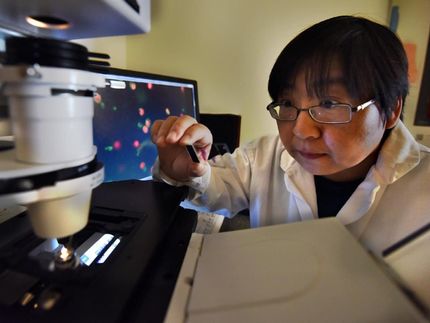Insect Cells Provide the Key to Alternative Swine Flu Vaccination
New production method can meet the demand of a global flu pandemic
Advertisement
Scientists in Vienna have developed a new technique for producing vaccines for H1N1, 'swine flu', based on insect cells. The research, published in the biotechnology Journal, reveals how influenza vaccines can be produced faster than through the traditional method of egg-based production, revealing a new strategy for the fight against influenza pandemics.
“Recent outbreaks of influenza highlight the importance of a rapid and sufficient vaccine supply for pandemic and inter pandemic strains,” said co-author Florian Krammer from the University of Natural Resources and Applied Life Science in Vienna. “However, classical manufacturing methods for vaccines fail to satisfy this demand.”
Traditional influenza vaccines, which are produced in embryonated chicken eggs, can be manufactured in the quantities needed for seasonal strains of influenza. Yet because of limited egg supply this method may be insufficient in a pandemic scenario, such as the current H1 N1 ‘swine flu’ pandemic. The team’s new method turns to insect cell based technology to create recombinant influenza virus-like particles (VLPs), which resemble virus particles but lack the viral nucleic acid, so they are not infectious.
The Austrian team took just ten weeks to produce swine-origin pandemic H1N1 influenza VLPs for immunological study in mice. This shows that production of a mock-up vaccine is feasible in this time range, outcompeting conventional production methods which take months. Using insect cells also bypasses the disadvantages of egg-based production, such as limited production capacity, allergic reactions to egg proteins and biosafety issues.
“Our work demonstrates that recombinant influenza virus-like particles are a very fast, safe and efficient alternative to conventional influenza vaccines and represents a significant new approach for newly emerging influenza strains like swine-origin H1N1 or H5N1” concluded Krammer.
Original publication: Krammer, Florian; Nakowitsch, Sabine; Messner, Paul; Palmberger, Dieter; Ferko, Boris; Grabherr, Reingard, “Swine-origin pandemic H1N1 influenza virus-like particles produced in insect cells induce neutralizing antibodies in BALB/c mice”; Biotechnology Journal, Wiley-Blackwell, 2009.
Other news from the department science
Most read news
More news from our other portals
See the theme worlds for related content
Topic world Antibodies
Antibodies are specialized molecules of our immune system that can specifically recognize and neutralize pathogens or foreign substances. Antibody research in biotech and pharma has recognized this natural defense potential and is working intensively to make it therapeutically useful. From monoclonal antibodies used against cancer or autoimmune diseases to antibody-drug conjugates that specifically transport drugs to disease cells - the possibilities are enormous

Topic world Antibodies
Antibodies are specialized molecules of our immune system that can specifically recognize and neutralize pathogens or foreign substances. Antibody research in biotech and pharma has recognized this natural defense potential and is working intensively to make it therapeutically useful. From monoclonal antibodies used against cancer or autoimmune diseases to antibody-drug conjugates that specifically transport drugs to disease cells - the possibilities are enormous

























































